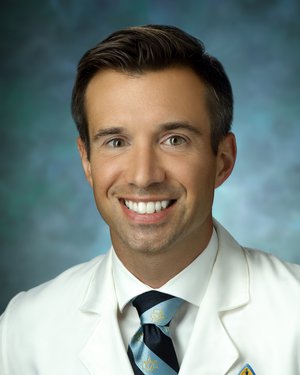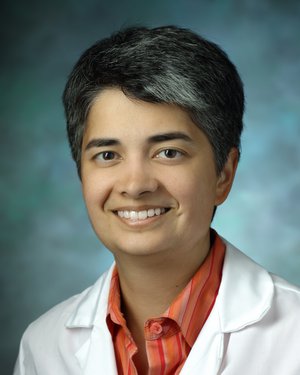Research Lab Results
-
Nicholas Flavahan Lab
The Nicholas Flavahan Lab primarily researches the cellular interactions and subcellular signaling pathways that control normal vascular function and regulate the initiation of vascular disease. We use biochemical and molecular analyses of cellular mediators and cell signaling mechanisms in cultured vascular cells, while also conducting physiological assessments and fluorescent microscopic imaging of signaling systems in isolated blood vessels. A major component of our research involves aterioles, tiny blood vessles that are responsible for controlling the peripheral resistance of the cardiovascular system, which help determine organ blood flow. -
Nicholas Rowan Lab
Dr. Rowan is actively involved in both outcomes and translational research relating to chronic rhinosinusitis and endoscopic skull base surgery. He has a keen interest patient-reported quality of life outcomes as well as those that pertain to smell and taste. Dr. Rowan is also involved in sinus-related clinical trials, pursuing new medical therapies and technological advancements for the treatment of patients with chronic rhinosinusitis.
-
Nicola Heller Lab
Research in the Nicola Heller Lab focuses on the immunobiology of macrophages. Our team explores how these cells impact diseases with an inflammatory element, such as cancer, cardiovascular disease and obesity. Using a variety of techniques, including molecular and cellular biology, biochemistry, mouse models and more, we study the role of IL-4/IL-13 signaling in asthma and allergic disease, as well as the role of alternatively activated macrophages (AAM) in the pathogenesis of allergic inflammation. Currently, we are researching the links between asthma and obesity, with a focus on the roles of gender and race. -
Nicole Shilkofski Lab
Work in the Nicole Shilkofski Lab aims to improve patient safety in critical care settings, with a focus on resuscitation scenarios. Our research is conducted as part of the research group of the Johns Hopkins Medical Simulation Center. We investigate the communication and functionality of teams during medical crisis situations. As part of those efforts, we are designing a web-based curriculum to teach pediatric resuscitation through mannequin simulation and computer-based simulation techniques. -
Nisa Maruthur Lab
The Nisa Maruthur Lab studies primary care; individualized medicine for the prevention and treatment of type 2 diabetes and obesity; pharmacogenomics of type 2 diabetes; and comparative effectiveness.
-
Noah Lechtzin Lab
Research in the Noah Lechtzin Lab investigates several important aspects of cystic fibrosis (CF), including the impact of antibiotic-resistant bacterial infections in CF patients and new therapy options for individuals with CF. Our research into new CF therapies has included studies on home electronic symptom and lung function monitoring, transbronchial needle aspiration and bedside percutaneous endoscopic gastrostomy tube placement. We also explore the role of metabolic complications in CF patients by examining how the disease is impacted by factors such as vitamin D deficiency, osteoporosis and testosterone deficiency.
-
Obesity Hypertension Clinic: Reversing the Negative Cardiovascular Effects of Weight (ReNEW)
Hypertension in children is a major cause of disease, including early onset heart disease. Up to 25% of children who are overweight or obese have hypertension (high blood pressure), and children with obesity are at greater risk for having other cardiovascular disease risk factors such as high cholesterol and diabetes. The ReNEW Clinic at The Johns Hopkins University provides an innovative multidisciplinary approach to the evaluation and treatment of obesity-related hypertension to help prevent and treat cardiovascular disease. This clinic is designed for children with elevated blood pressure (prehypertension and hypertension) and a BMI at or above the 85th percentile. Many children in this clinic are enrolled in a longitudinal registry to help researchers learn how to better care for children with multiple risk factors for heart disease.Read more about the ReNEW clinic: Childhood Obesity: A Focus on Hypertension
-
O'Connor Lab
How do brain dynamics give rise to our sensory experience of the world? The O'Connor lab works to answer this question by taking advantage of the fact that key architectural features of the mammalian brain are similar across species. This allows us to leverage the power of mouse genetics to monitor and manipulate genetically and functionally defined brain circuits during perception. We train mice to perform simple perceptual tasks. By using quantitative behavior, optogenetic and chemical-genetic gain- and loss-of-function perturbations, in vivo two-photon imaging, and electrophysiology, we assemble a description of the relationship between neural circuit function and perception. We work in the mouse tactile system to capitalize on an accessible mammalian circuit with a precise mapping between the sensory periphery and multiple brain areas. Our mission is to reveal the neural circuit foundations of sensory perception; to provide a framework to understand how circuit dysfunction causes mental and behavioral aspects of neuropsychiatric illness; and to help others fulfill creative potential and contribute to human knowledge. -
Ocular Motor Physiology Laboratory
Our research is directed toward how the brain controls the movements of the eyes (including eye movements induced by head motion) using studies in normal human beings, patients and experimental animals. The focus is on mechanisms underlying adaptive ocular motor control. More specifically, what are mechanisms by which the brain learns to cope with the changes associated with normal development and aging as well as the damage associated with disease and trauma? How does the brain keep its eye movement reflexes properly calibrated? Our research strategy is to make accurate, quantitative measures of eye movements in response to precisely controlled stimuli and then use the analytical techniques of the control systems engineer to interpret the findings. Research areas: 1) learning and compensation for vestibular disturbances that occur either within the labyrinth or more centrally within the brain, 2) the mechanisms by which the brain maintains correct alignment of the eyes to prevent diplopia and strabismus, and 3) the role of ocular proprioception in localizing objects in space for accurate eye-hand coordination. -
O'Rourke Lab
The O’Rourke Lab uses an integrated approach to study the biophysics and physiology of cardiac cells in normal and diseased states. Research in our lab has incorporated mitochondrial energetics, Ca2+ dynamics, and electrophysiology to provide tools for studying how defective function of one component of the cell can lead to catastrophic effects on whole cell and whole organ function. By understanding the links between Ca2+, electrical excitability and energy production, we hope to understand the cellular basis of cardiac arrhythmias, ischemia-reperfusion injury, and sudden death. We use state-of-the-art techniques, including single-channel and whole-cell patch clamp, microfluorimetry, conventional and two-photon fluorescence imaging, and molecular biology to study the structure and function of single proteins to the intact muscle. Experimental results are compared with simulations of computational models in order to understand the findings in the context of the system as a whole. Ongoing studies in our lab are focused on identifying the specific molecular targets modified by oxidative or ischemic stress and how they affect mitochondrial and whole heart function. The motivation for all of the work is to understand • how the molecular details of the heart cell work together to maintain function and • how the synchronization of the parts can go wrong Rational strategies can then be devised to correct dysfunction during the progression of disease through a comprehensive understanding of basic mechanisms. Brian O’Rourke, PhD, is a professor in the Division of Cardiology and Vice Chair of Basic and Translational Research, Department of Medicine, at the Johns Hopkins University.






